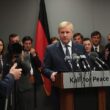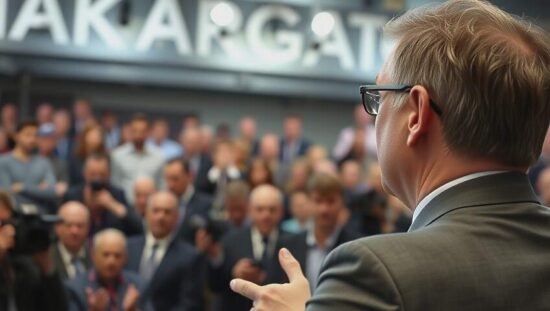Rheinland-Pfalz’s Minister-President Alexander Schweitzer is urging his Social Democratic Party (SPD) to revitalize its approach and reconnect with voters through innovative ideas and a more emotionally resonant political message. In remarks published Monday, Schweitzer argued that harnessing emotional connection is crucial, stating the party should not concede this aspect of politics to those on the political fringes.
Schweitzer emphasized the historical strength of the SPD’s ability to inspire through its ideas, calling for a rekindling of that spirit to generate enthusiasm amongst the electorate. He highlighted a perceived appetite for constructive alternatives to divisive rhetoric, suggesting many citizens are awaiting a compelling and positive vision from the political center.
The SPD, Schweitzer asserted, needs a distinct political platform, one that both reaches and resonates with the public. While acknowledging the importance of effective governance at all levels – federal, state and local – he believes this alone is insufficient. He expressed a concern that the party has become perceived as overly cautious, advocating for fresh perspectives and a renewed style of communication.
Schweitzer cautioned against a solely technocratic approach, noting that citizens desire more than just bureaucratic solutions. He underscored the need for the SPD to address significant global shifts with bold and fundamental responses, shifting the focus from purely analytical arguments to more heart-felt appeals. His aim is to regain the support of previous SPD voters by demonstrating not just competent leadership, but genuine inspiration.
Looking to the future of the social welfare system, Schweitzer called for an end to partisan infighting between the SPD and the Christian Democratic Union (CDU). He described the current system as outdated and overly complex, citing a proliferation of involved agencies and excessive administrative costs. He argued that modernization is essential to the system’s survival, urging the SPD to lead the charge beyond simply defending the status quo.
Schweitzer specifically criticized the recurring debate over social benefits, dismissing both calls for blanket cuts and staunch opposition to any reform. He asserted that the ultimate goal should be to empower individuals to achieve financial independence through employment, shifting the focus away from a narrow discussion of redistribution and towards proactive measures for self-sufficiency.





